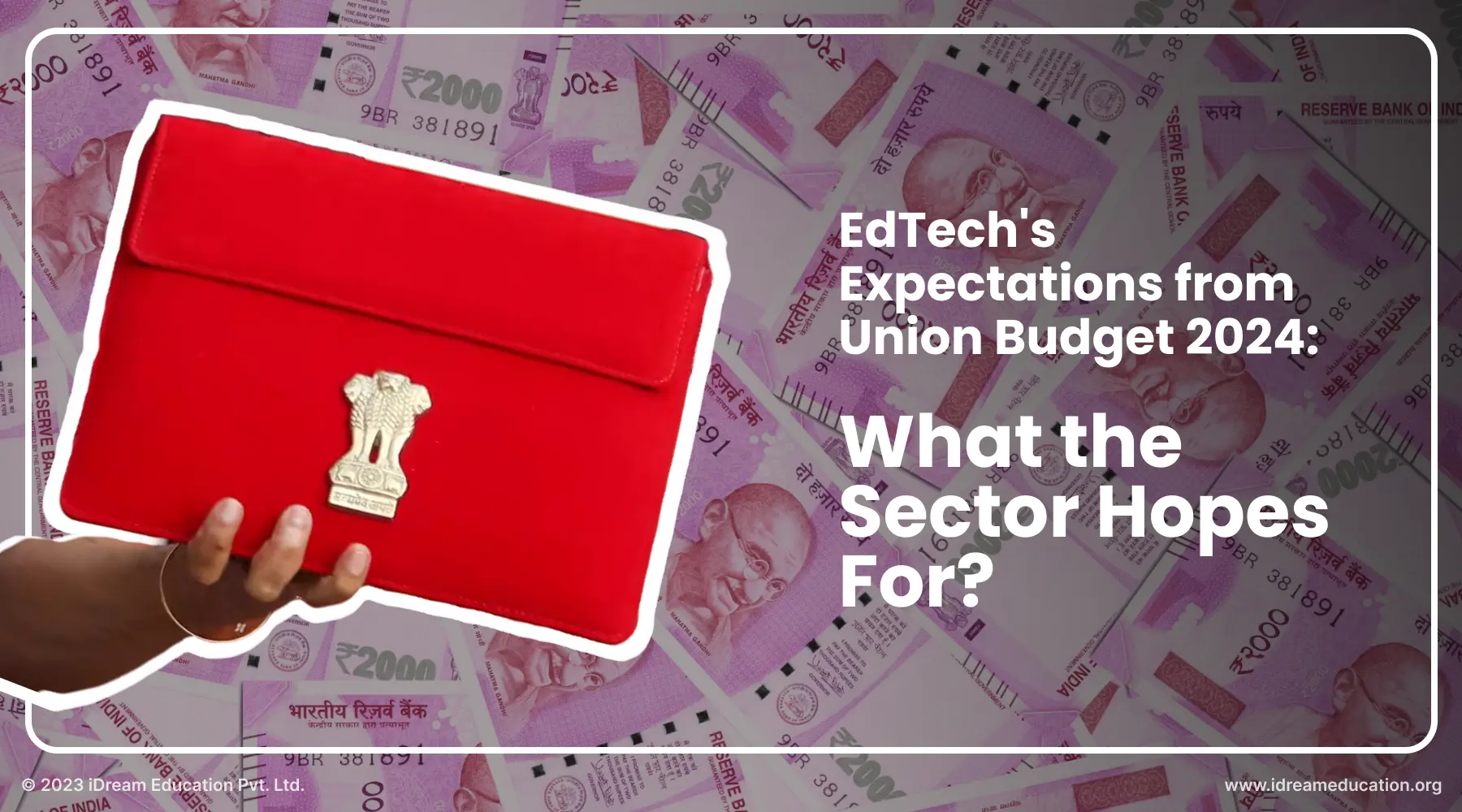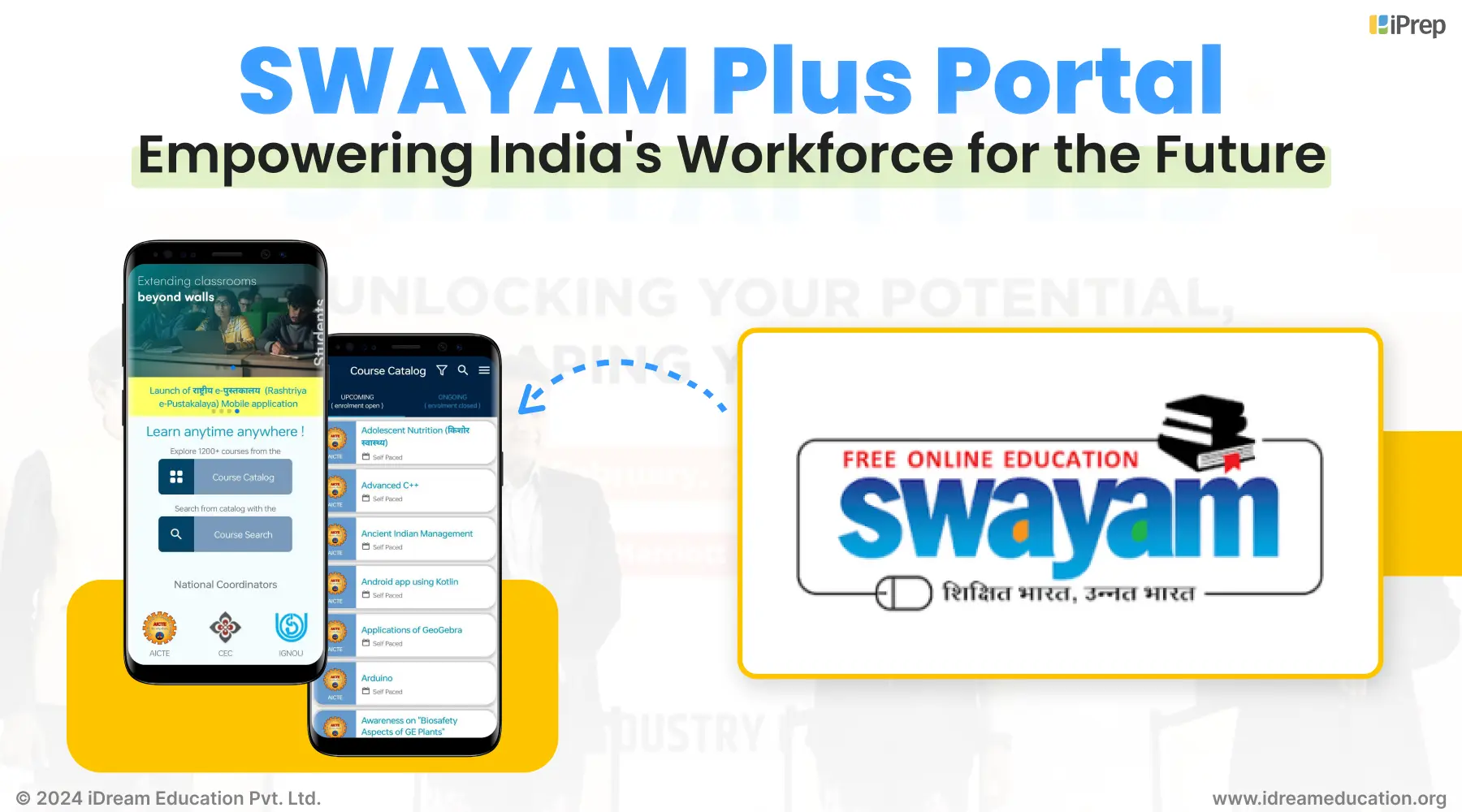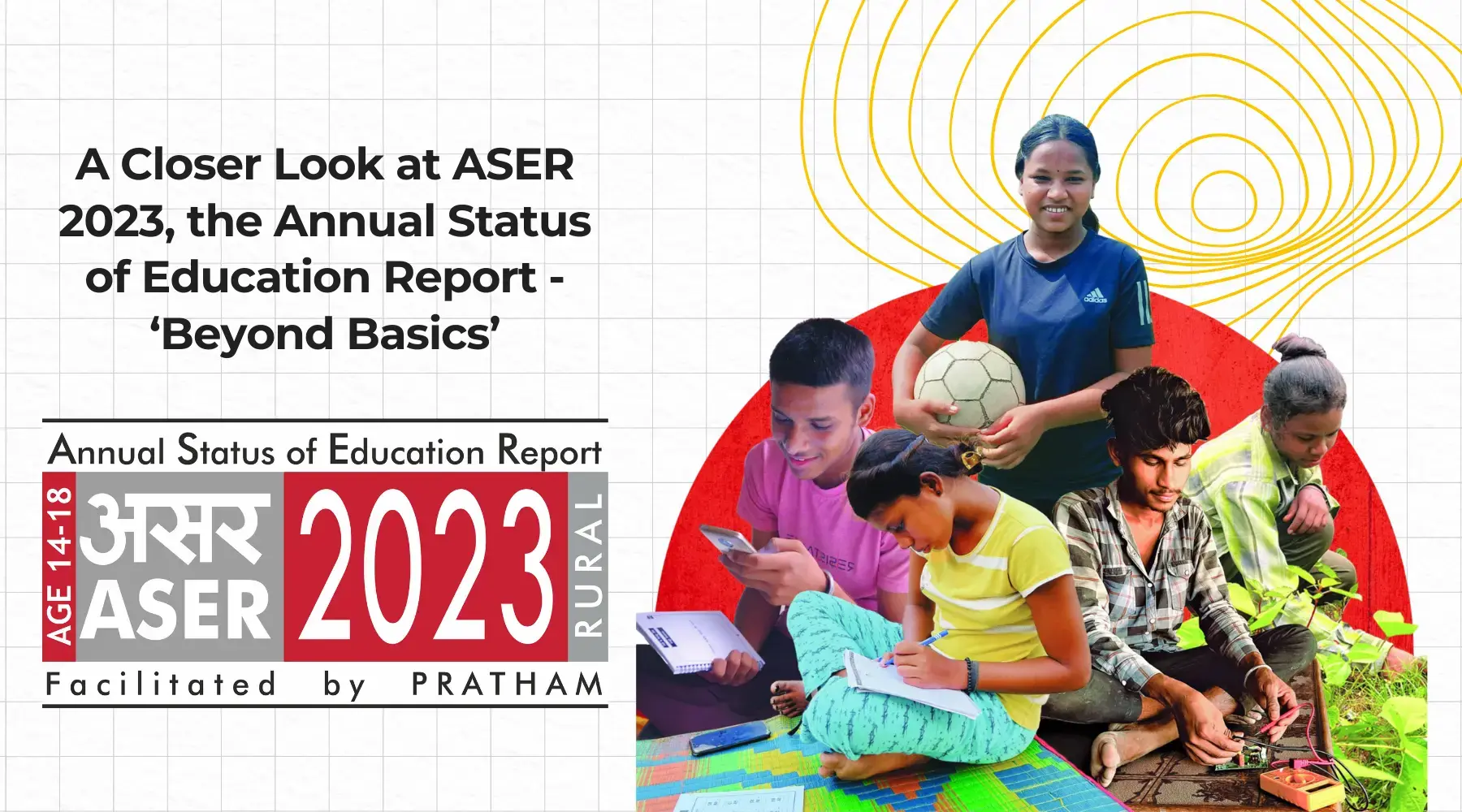A Closer Look at State of the Education Report for India 2023 by UNESCO
In 2023, UNESCO’s New Delhi Regional Office launched, Seeds of Change: State of the Education Report on India’s education system to address climate change.
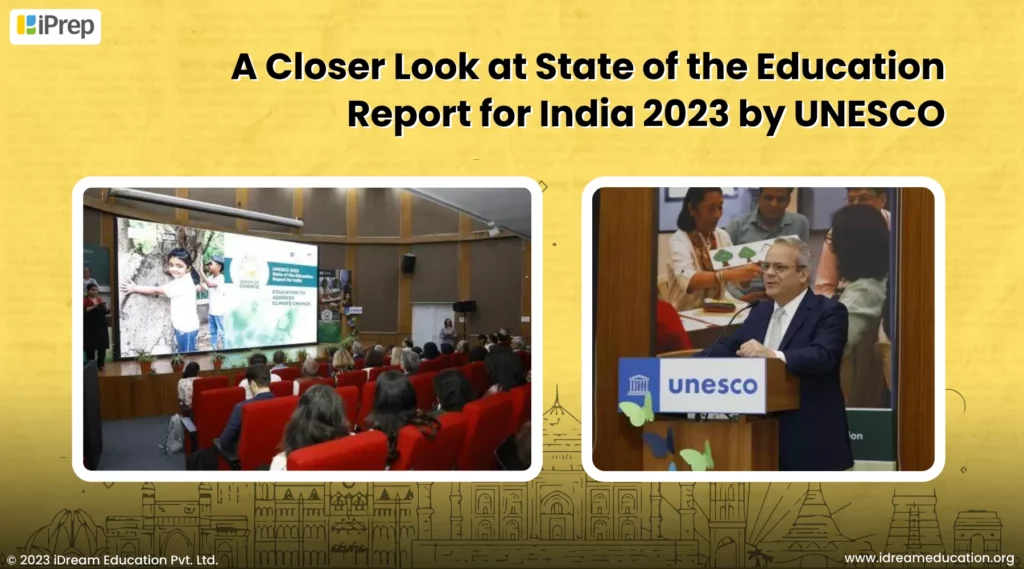
In the Climate Change Performance Index of 2023, India is in 8th position among 59 countries and the European Union. Together they contribute to 92% of worldwide greenhouse gas emissions.
UNESCO’s State of the Education Report sheds light on the significance of education in combating climate change
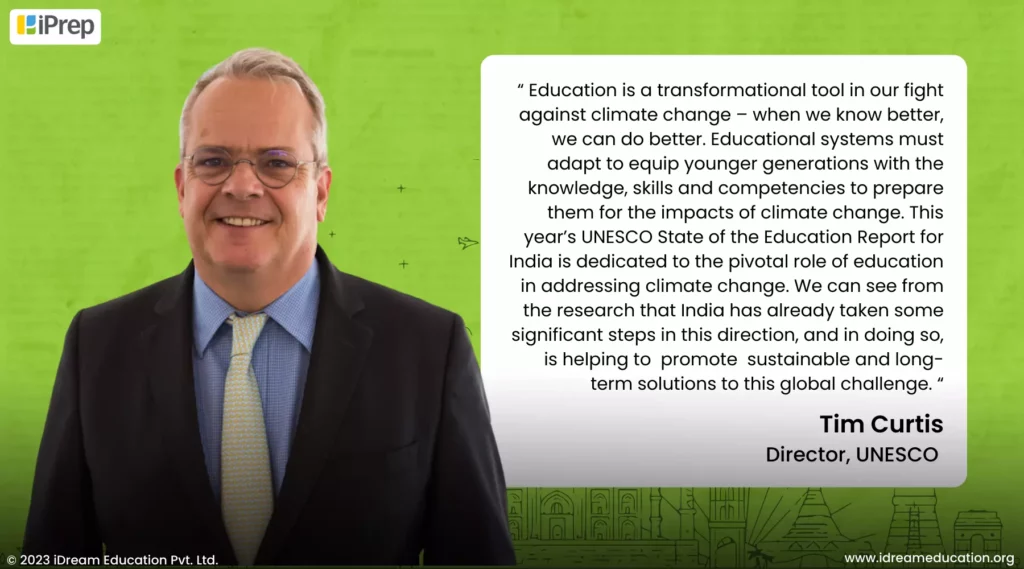
The revised National Curriculum Framework (NCF) 2023 mentions climate change 52 times. India is now well-positioned to explore climate education innovations, as highlighted by UNESCO’s State of the Education Report, which emphasizes best practices and future opportunities.
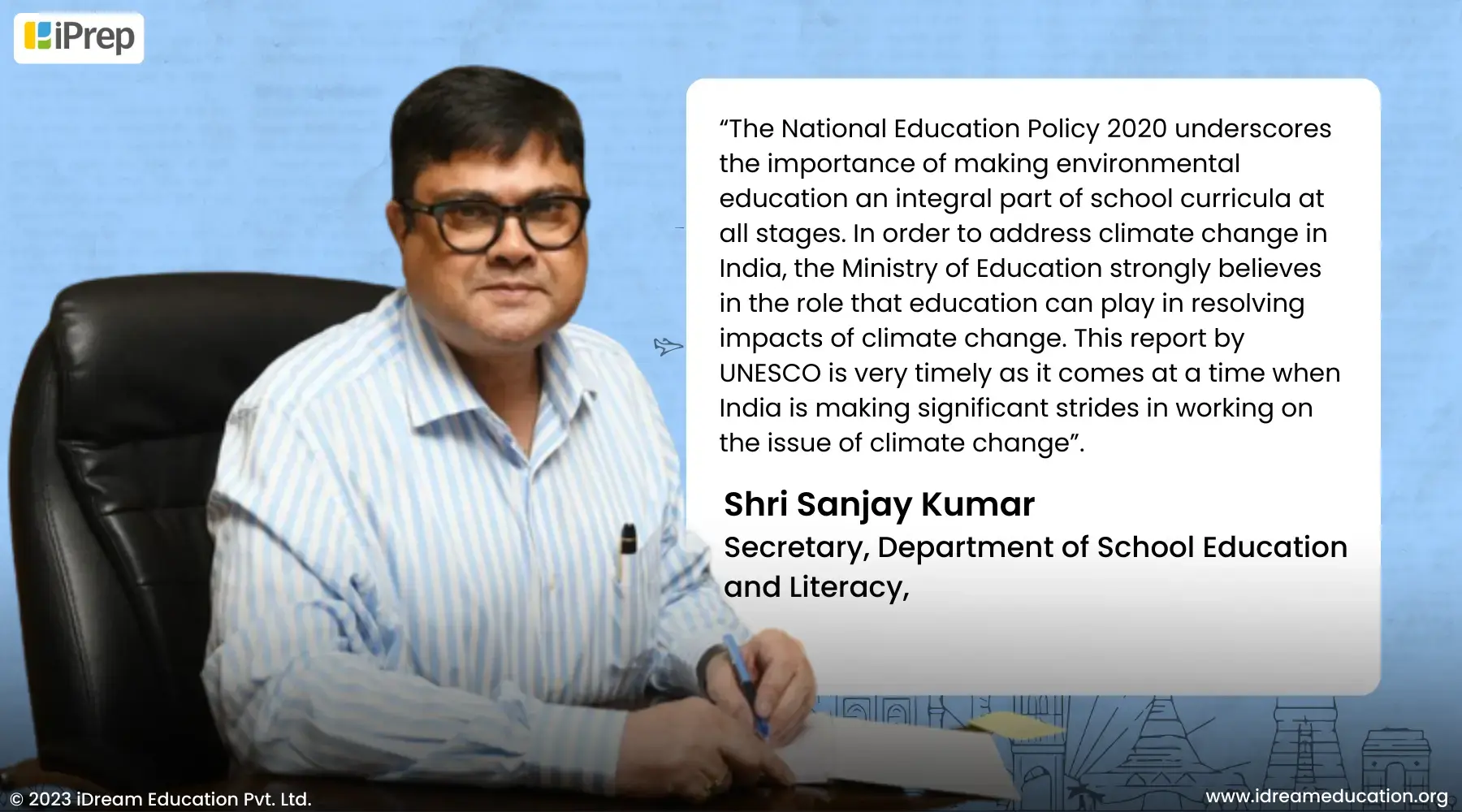
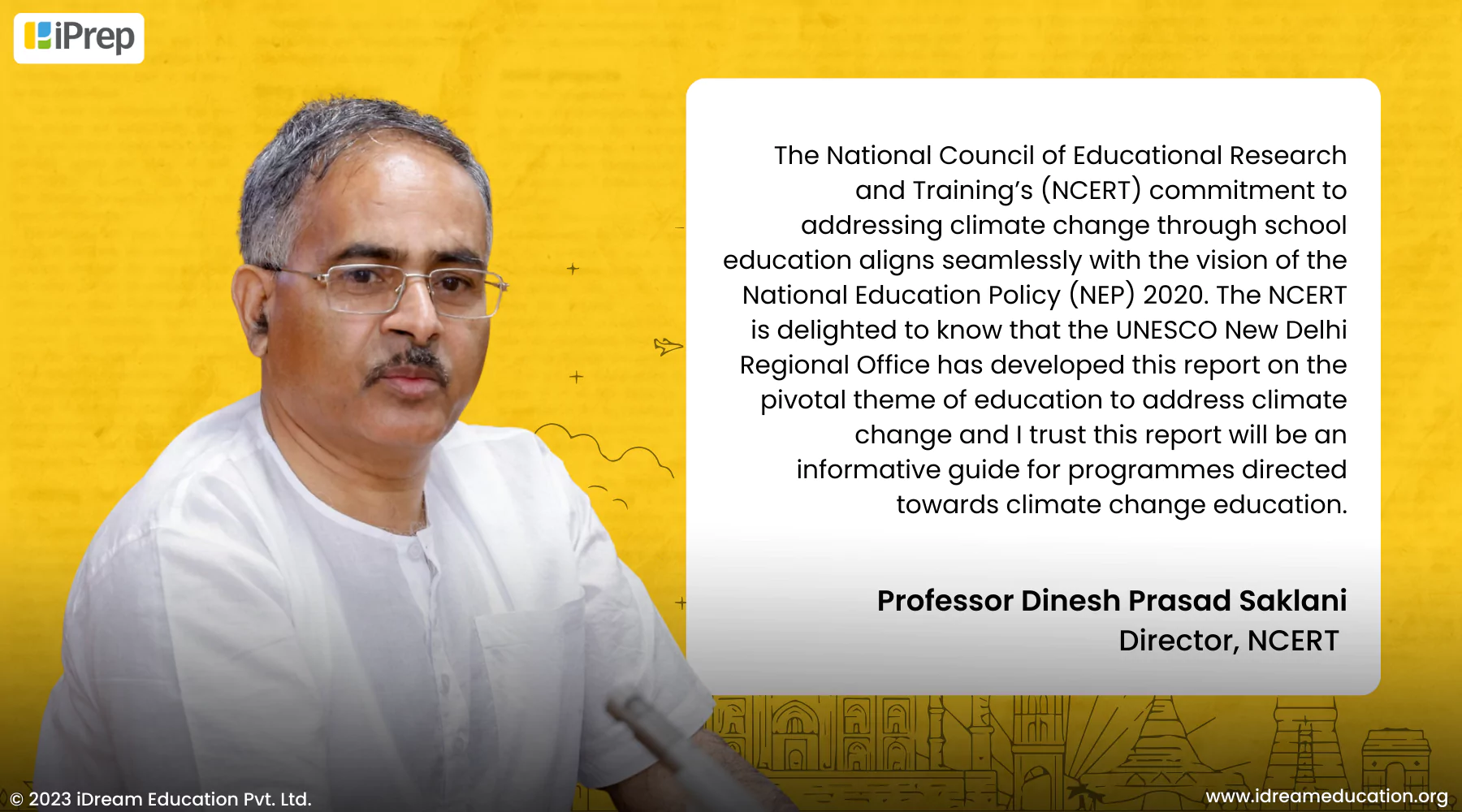
UNESCO serves as the secretariat to the Greening Education Partnership (GEP)
UNESCO has promoted intersectoral partnerships, political commitments, and youth empowerment to leverage education for a greener and more sustainable future. UNESCO’s global programme, Education for Sustainable Development (ESD), contributes to this by laying the foundation for policy innovation and global collaboration.
In line with this, the Greening Education Partnership (GEP), launched by the United Nations Secretary-General in 2022, enables a practical framework for stakeholders in the education sector to take further action.
80 Member States have already joined the Partnership
UNESCO is serving as the secretariat with a commitment to green education systems, built around four pillars:
- Greening schools
- Greening curriculum
- Greening teacher training and education systems’ capacities
- Greening communities
These four pillars of the Greening Education Partnership (GEP) are used as a guide with which the UNESCO report analyzes India’s state of education to address climate change. The State of the Education Report is a synergy between UNESCO’s globally informed framework and the local expertise cultivated by the research team from the Centre for Environmental Education.
The report outlines ten actionable recommendations for education stakeholders in India to enhance their role in addressing climate change:
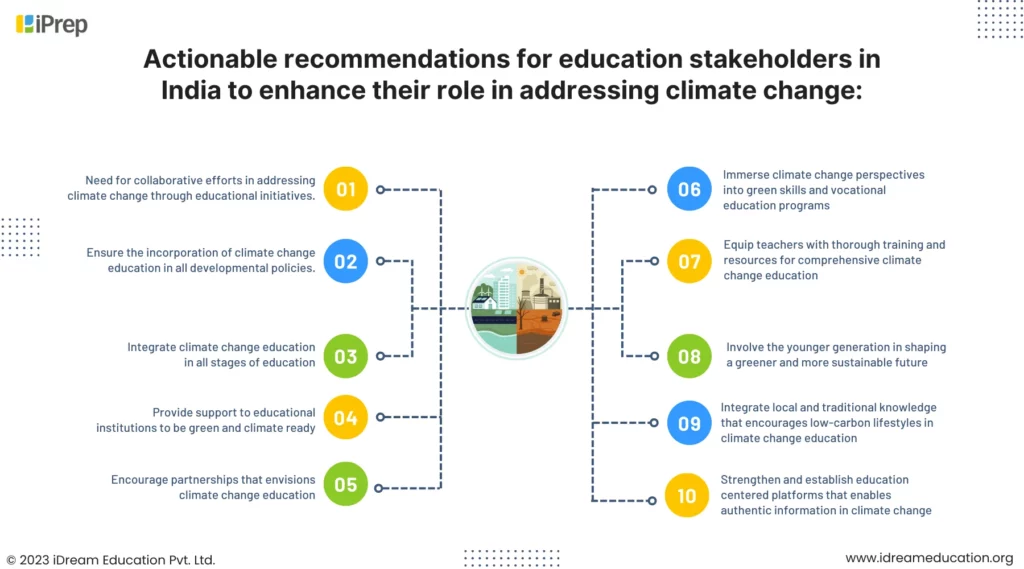
- Need for collaborative efforts in addressing climate change through educational initiatives.
- Ensure the incorporation of climate change education in all developmental policies.
- Integrate climate change education in all stages of education
- Provide support to educational institutions to be green and climate-ready
- Immerse climate change perspectives into green skills and vocational education programs
- Equip teachers with thorough training and resources for comprehensive climate change education.
- Involve the younger generation in shaping a greener and more sustainable future.
- Integrate local and traditional knowledge that encourages low-carbon lifestyles in climate change education.
- Encourage partnerships that envision climate change education
- Strengthen and establish education-centered platforms that enable authentic information on climate change
The launch event of GEP showcased significant strides taken by India in addressing climate change through education.
The State of the Education Report by UNESCO serves as a beacon, shedding light on the critical role education plays in addressing climate change.
iDream Education happily aligns with this vision, recognizing the power of education in shaping future leaders committed to environmental sustainability. We anticipate partnerships with Foundations, NGOs, corporates, system integrators, and other ecosystem partners working to enable climate change awareness and action among K-12 students.
The integration of the iPrep Climate Action Course with K-12 education stands as a testament to our commitment. It offers a unique opportunity for students to engage with and contribute to climate action. With this we envision fostering a deep understanding of the environmental landscape and inspiring proactive measures, we aim to empower the next generation to emerge as true climate leaders, driving positive change for a sustainable future.
If in case you would like to know more about our digital learning solutions, visit our website, www.idreameducation.org, or write to us at share@idreameducation.org


